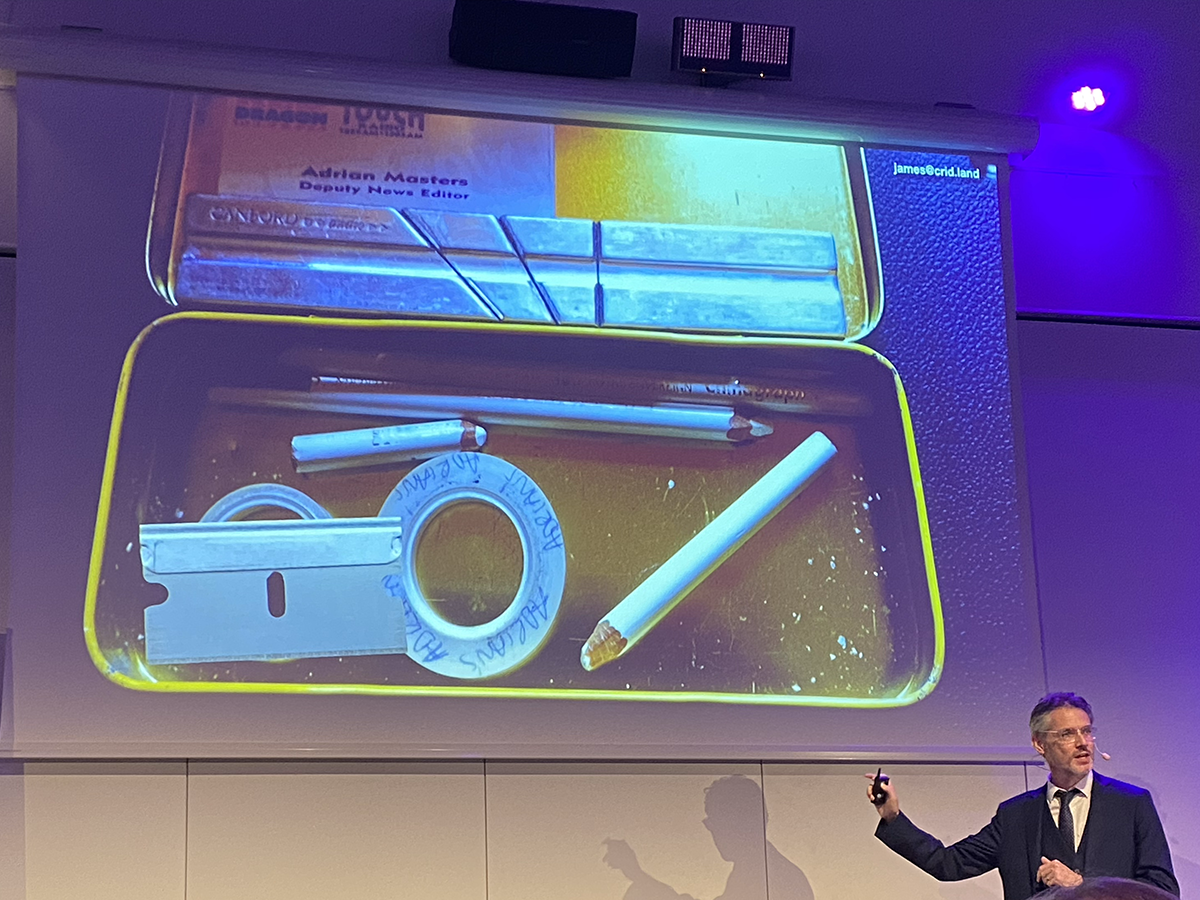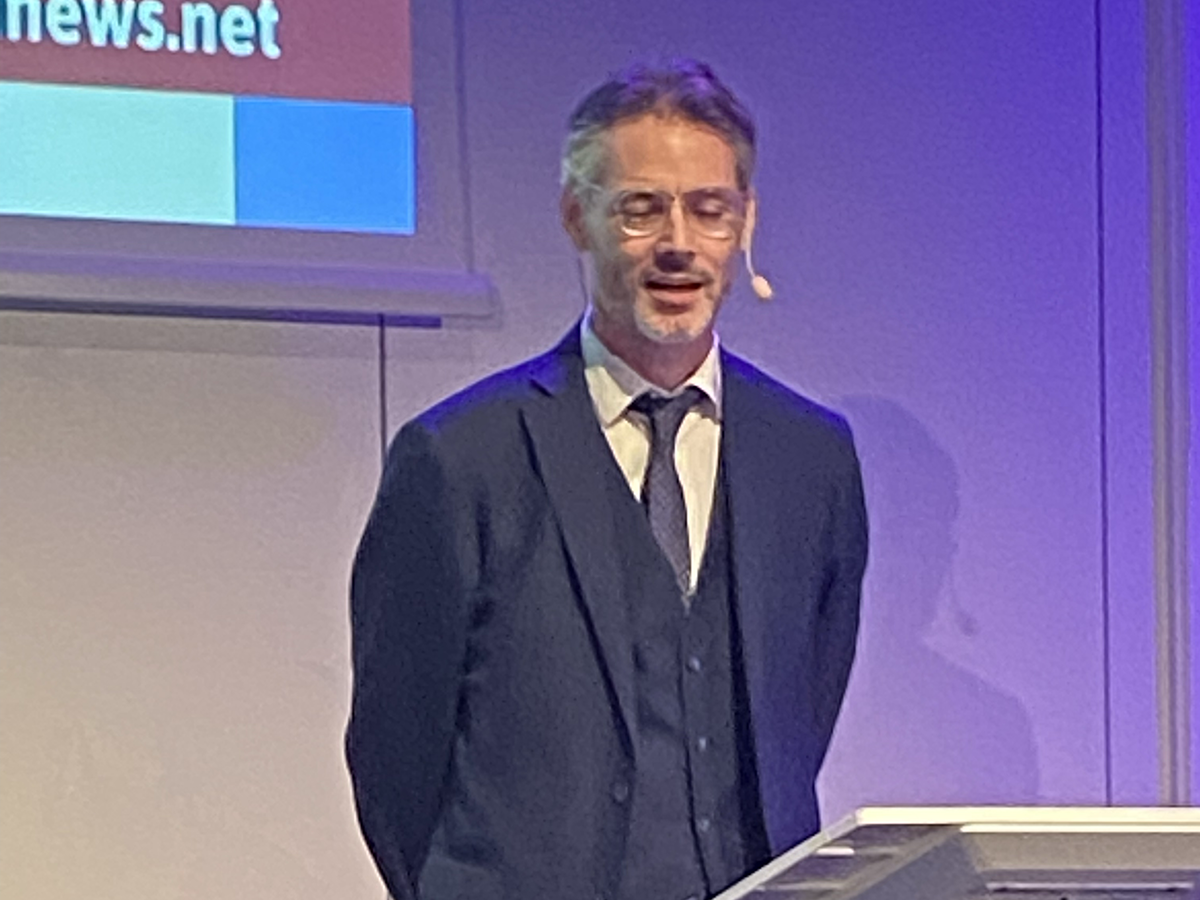James Cridland is a radio futurologist, editor of Podnews and a sometime contributor to radioinfo.
He is also a much in demand speaker at audio conferences around the world, so it wasn’t surprising that he was at Radiodays Europe either presenting or moderating sessions.
Wayne Stamm from radioinfo caught up with James who had just presented his final session of the conference, Cool New Tech for Radio that you should be using.
James is a radio geek, and I say this with a great deal of admiration and affection. It is easy to forget his career in radio as these days he most often talks about Podcasting, but I had just sat through a presentation in which he showed off some great little toys.
James loves new toys and has found some great software for both podcasting and radio.
I am sure you will find a link to these on his website, and I would urge you to take a look, especially if you have a home studio.
What I did want to talk to him was about more recent trends in podcasting, so I asked him about the decline we are seeing in new shows.
radioinfo: So we’ve seen a lot on podcasting here at Radio Days, but there seems to be a situation now where we’re not seeing quite as many new podcasts that we’d seen before.
James: Yeah, we’re seeing less new launches of podcasts. But having said that, there was a tremendous growth in the middle of 2020, as lots of people thought, “we’re stuck at home, what can we do? We can’t do anything except launch a podcast, so we’ll go launch podcasts.”
And so I wonder whether actually what we’re seeing is not a decline, but just a return to the normal rate of new shows which are being which are being launched.
But we’re still seeing a ton of new shows and lots of money being put into them. Now, we’re not seeing just sort of, you know, random man sitting in his bathroom at home talking into a microphone. We’re seeing much more carefully produced shows and I think that that’s an important thing.
radioinfo: I do remember when we talked about podcasts a number of years ago, there was this real like about them in that they were very raw. So the sound was under produced in a lot of ways.
James: Yeah…to give an Australian example, the Teacher’s Pet and the Teacher’s Pet was very much, just Hedley Thomas recording it on his iPhone in the back of a car.
And I think those are fun, but at the end of the day, if they’re not easily listenable too. If they don’t sound as good as the types of shows that you would hear whether it’s on the ABC, whether it’s on Triple M or whatever, then actually they don’t necessarily compare as well to the to the professional stuff that you’re that you’re used to.
So I think actually focusing on the quality of the of the audio and just making sure that your that you’re editing.
A lot of people ask what’s the longest what’s the right length for a podcast? And my answer to that is as long as it needs to be, but not a second longer, get rid of all of the fluff, respect your audience’s time. And I think that’s what people are now doing in terms of the podcasting side.
radioinfo: The podcast is taking on different forms now, with the inclusion of short stories and abridged novels.
James: There are things going on around abridged books, but also there’s a company in the US and the UK which is called Blinkist, which is producing abridged versions of podcasts.
I mean, if you’ve ever tried listening to a Joe Rogan podcast, they’re, you know, two and a half hours long. What this company would do, not with Joe Rogan, but certainly with others, is to take the very best bits of those podcasts and shrink them down so (they can be) aimed at executives and people like that who are time poor and and rich, to help them go through those sorrts of things.
So, yeah, I mean, I think we’re seeing a lot more short form content and short form content certainly works well in many other formats as well.
radioinfo: And radio drama.
James: Yeah, lots of this real growth in fiction, audio fiction is it’s as it’s called. I mean, obviously, radio drama in most parts of the world has fallen off the air, but there are still bits of radio drama on community radio in Australia, but not that much.
And actually seeing the growth of that in the podcast world is really interesting. There is one country and I think it’s the US, but I may be wrong, it may be Canada actually thinking about it, where young females 15 to to 24 year olds, the most popular genre for them in terms of podcasting is audio fiction.
So there’s some real interest, I think, in that form of radio that’s clearly incredibly expensive to produce, but actually you can do some interesting things in terms of the podcasting world.


